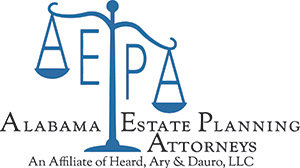Legal-Ease: Nursing Home Planning: Beyond Just Giving the House to the Kids
By Lee R. Schroeder
Often, people’s most valuable asset is their home. Many people mark the day that they pay off their home mortgage with a celebration similar to that of an anniversary or birthday. Therefore, protecting the home in the event of eventually needing long-term care (i.e. nursing home, assisted living or in-home care) can be many people’s top priority as soon as that home is paid off.
A mature adult who gives his or her home to “the kids” is not likely to incur any tax obligations for the mature adult or the kids (unless the mature adult has previously given away over $12 million during the mature adult’s lifetime). Nevertheless, proper planning for long-term care necessarily includes more than simply signing over a deed to the house to the kids.
Parents love their children so much that parents can struggle to comprehend that their kids may not love the parents back, even if there is extensive evidence that a child sincerely hates his or her parents. Therefore, there is risk that anything (including a house) given to adult children will be sold or rented to someone else by those adult children. Before you say, “My child would never,” be assured that rebellious, adult children are much more common in our society than we think.
Additionally, once the house is given away, if the parents want to downsize or take out a loan for some big improvements (new roof, furnace etc.), the parents’ kids and the kids’ spouses must sign off on those transactions.
Although there are usually no tax implications from giving a home to kids, such a gift could subject the kids to excessive/unnecessary capital gains taxes when the home is eventually sold (even/especially if the sale is made after the parents die).
Even more challenging is that parents who have the “homestead exemption” (that usually provides a few-hundred-dollars-per-year discount on real estate taxes) will almost always lose that homestead exemption if they give their home to their kids.
If a home is the primary asset to protect from long-term care expenses (to position the home to not be considered a “countable asset” toward the $2,000 net worth limit imposed by Medicaid), the parents should consider structuring the gift as a life estate retained by the parents, which parental ownership interest cannot be sold by the parents during the parents’ lifetimes (thus, being considered “not countable/available” for purposes of Medicaid).
Alternatively, but less effectively, parents should consider giving the house to the kids with the kids agreeing in writing to maintain the home and allow the parents to live in the home rent-free as long as the parents want.
If there are assets to protect above and beyond a house (land, bank/investment accounts, machinery etc.), use of an irrevocable (“Medicaid”) trust can be a much more effective tool. Such a trust is not without expense, but the return on investment for this type of trust can make it a no-brainer in many long-term care planning situations.
Lee R. Schroeder is an Ohio licensed attorney at Schroeder Law LLC in Putnam County
